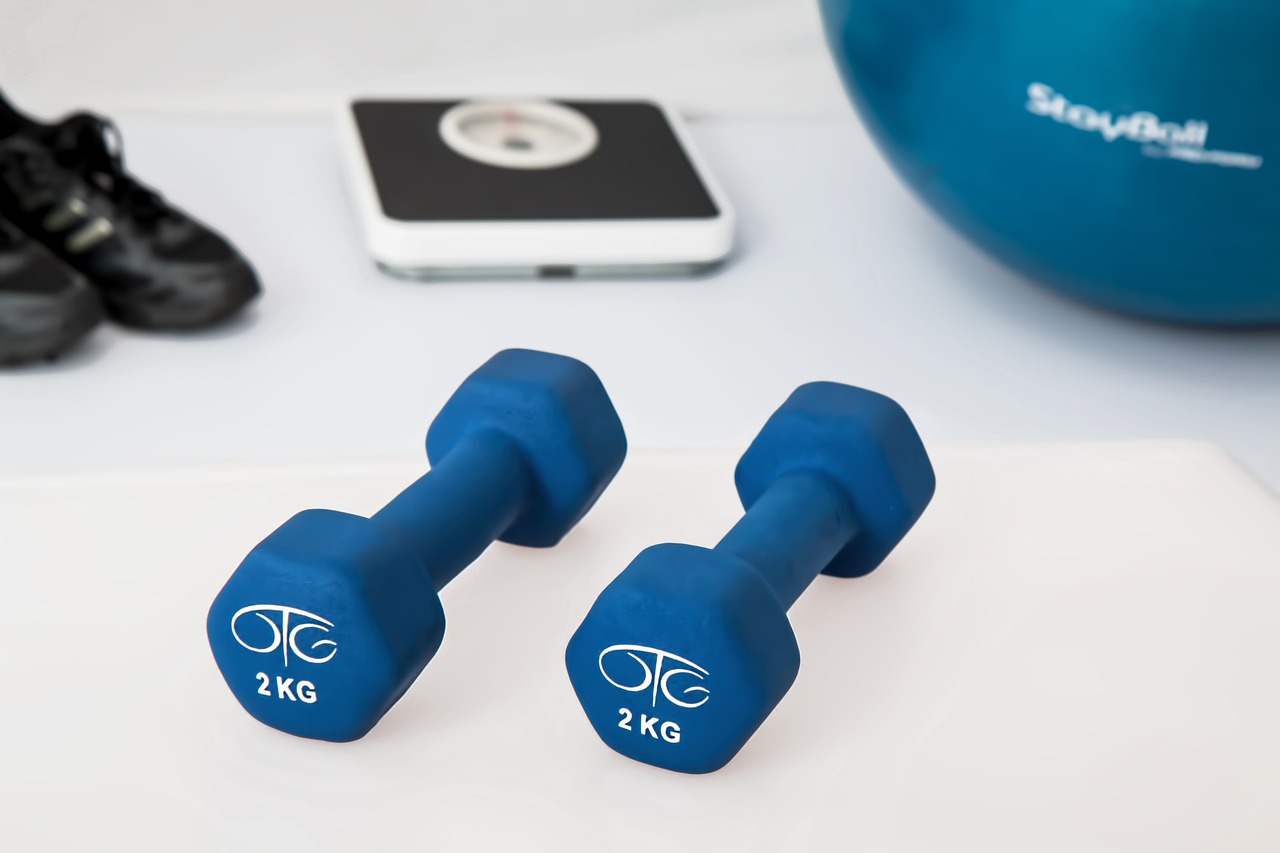In a groundbreaking new study, the impact of attitude towards exercise on the aging process has been unveiled. This research sheds light on how one’s mindset towards physical activity can significantly influence the way we age. The study’s findings reveal the profound consequences that our perception and approach to exercise can have on our overall well-being and longevity. Get ready to discover the incredible correlation between attitude and aging, and uncover the key to staying youthful and vibrant throughout the years.

This image is property of pixabay.com.
Physical Health
Regular exercise has a multitude of benefits for your physical health. One of the most significant advantages is the reduced risk of chronic diseases. Engaging in regular physical activity can help prevent diseases such as heart disease, stroke, diabetes, and certain types of cancer. By incorporating exercise into your daily routine, you are taking proactive steps towards maintaining a healthy body.
Another positive impact of exercise on physical health is improved cardiovascular health. Regular exercise helps strengthen your heart and improves blood circulation throughout your body. This, in turn, lowers your risk of developing heart disease, high blood pressure, and other cardiovascular conditions. By maintaining a strong and healthy heart, you ensure that your body receives the necessary oxygen and nutrients for optimal functioning.
In addition, exercise plays a crucial role in enhancing immune function. Physical activity stimulates the production of antibodies and activates cells that help combat pathogens, thereby strengthening your immune system. By engaging in regular exercise, you can reduce your susceptibility to illnesses, infections, and diseases. A stronger immune system means a healthier body overall.
Mental Health
Exercise not only benefits your physical health but also has a significant impact on your mental well-being. Regular physical activity has been shown to reduce cognitive decline, which is particularly important as we age. Studies have shown that individuals who maintain an active lifestyle are less likely to experience age-related memory loss and cognitive decline. By incorporating exercise into your routine, you can help keep your mind sharp and maintain your cognitive abilities.
Furthermore, exercise has been proven to increase mental clarity. When you exercise, your brain releases endorphins and other feel-good chemicals that improve your mood and mental state. This not only helps you feel more focused and alert but also enhances your overall cognitive function. By engaging in regular exercise, you can experience improved mental clarity, enabling you to better navigate daily challenges and tasks.
Exercise is also associated with a decreased risk of depression and anxiety. Physical activity stimulates the release of serotonin, endorphins, and other mood-regulating neurochemicals, which can help alleviate symptoms of depression and anxiety. Additionally, exercise provides a healthy coping mechanism and serves as a natural stress reliever. By incorporating exercise into your routine, you can better manage your mental well-being, improve your mood, and reduce the risk of developing mental health disorders.
Quality of Life
Incorporating exercise into your daily routine can greatly improve your quality of life. Regular physical activity contributes to improved mobility and flexibility. By keeping your muscles and joints active through exercise, you can increase your range of motion, prevent stiffness, and maintain your ability to perform daily tasks with ease. This enhanced mobility and flexibility can significantly enhance your overall independence and quality of life.
Engaging in regular exercise also boosts your energy levels. Exercise increases blood flow and oxygen delivery to your muscles, helping to improve your endurance and stamina. By incorporating physical activity into your routine, you can combat fatigue and experience a consistent boost in energy throughout the day. With increased energy levels, you can engage in activities you enjoy, pursue hobbies, and lead a more fulfilling life.
Furthermore, exercise has been shown to regulate sleep patterns. Regular physical activity can help you fall asleep faster, achieve deeper sleep, and wake up feeling more refreshed. By promoting a healthy sleep cycle, exercise contributes to an overall improvement in your quality of life. Better sleep patterns lead to increased productivity, mental clarity, and an overall sense of well-being.
Bone Health
Exercise plays a vital role in maintaining strong and healthy bones. Regular physical activity can help prevent osteoporosis, a condition characterized by weak and brittle bones. Weight-bearing exercises, such as walking, jogging, and weightlifting, help stimulate bone growth, increase bone density, and strengthen your skeletal system. By incorporating these activities into your routine, you can reduce the risk of developing osteoporosis and ensure the longevity of your bone health.
In addition, participating in regular exercise contributes to a reduced risk of fractures. Strong and healthy bones are less prone to fractures and injuries. By engaging in weight-bearing activities, you strengthen your bones, making them more resistant to fractures. This is particularly important as you age, as older individuals are more susceptible to fractures due to decreased bone density. By prioritizing exercise, you can maintain strong bones and reduce the risk of fractures.

This image is property of pixabay.com.
Brain Function
Exercise has a profound impact on brain function. Regular physical activity is associated with enhanced memory and learning capabilities. Exercise stimulates the release of growth factors in the brain, which support the growth of new cells and neurons. By engaging in regular exercise, you can improve your memory, cognitive function, and ability to learn new skills. Additionally, exercise has been shown to enhance focus and concentration, allowing you to perform tasks more effectively.
Furthermore, exercise increases neuroplasticity, which refers to the brain’s ability to adapt and reorganize itself. Regular physical activity stimulates the production of neurotrophic factors, which promote the growth of new connections between brain cells. This increased neuroplasticity improves the brain’s ability to adapt to new challenges, learn new information, and recover from injuries. By incorporating exercise into your routine, you can enhance your brain’s agility and adaptability.
Exercise also improves overall brain performance. When you exercise, blood flow to the brain increases, delivering oxygen and essential nutrients. This enhances brain function and supports optimal cognitive performance. By prioritizing regular physical activity, you can enhance your brain’s performance, leading to improved problem-solving, decision-making, and overall cognitive abilities.
Aging Process
Regular exercise has the power to slow down the aging process and minimize age-related decline. Exercise has been shown to slow down cellular aging, allowing your body to function more effectively and maintain a youthful state. By engaging in physical activity, you can delay the onset of age-related conditions and experience a higher quality of life as you age.
Furthermore, exercise plays a critical role in delaying age-related decline. As you age, your muscles naturally weaken, leading to a decline in physical strength and function. Regular exercise can combat this decline by preserving muscle mass and strength. By incorporating strength training exercises into your routine, you can maintain muscle mass, improve balance, and reduce the risk of falls and injuries.
Exercise also contributes to maintaining independence as you age. By engaging in regular physical activity, you can improve your mobility, balance, and coordination. This enables you to perform daily tasks independently and without assistance, promoting a sense of autonomy and self-reliance. By prioritizing exercise, you can maintain your independence and live a fulfilling life as you age.

This image is property of pixabay.com.
Social Engagement
Exercise provides numerous opportunities for social interaction, contributing to an increased sense of belonging and community. Participating in group fitness classes, sports leagues, or simply going for a walk with a friend allows you to form social connections and build relationships. This social engagement not only provides companionship but also enhances your mood and emotional well-being.
Additionally, exercise can enhance your mood and emotional well-being on an individual level. Physical activity stimulates the release of endorphins, dopamine, and serotonin, all of which are known as “feel-good” chemicals. By engaging in regular exercise, you can experience an elevation in mood, reduced stress levels, and an overall increase in emotional well-being. Staying active and incorporating exercise into your daily routine can have a positive impact on your mental and emotional state.
Weight Management
Exercise plays a crucial role in weight management. Regular physical activity helps prevent weight gain by burning calories and boosting your metabolism. By engaging in activities such as cardiovascular exercise, strength training, and high-intensity interval training, you can maintain a healthy weight and prevent unwanted weight gain. Exercise also promotes weight loss by creating a calorie deficit and building muscle mass.
In addition to weight management, exercise can increase muscle mass. Incorporating strength training exercises into your routine helps build and maintain muscle, contributing to improved overall body composition. By increasing muscle mass, you can enhance your metabolism, burn more calories at rest, and achieve a leaner, more toned physique.
Disease Prevention
Regular exercise significantly lowers the risk of developing various diseases. Engaging in physical activity reduces the risk of developing diabetes by improving insulin sensitivity and regulating blood sugar levels. By incorporating exercise into your routine, you can reduce your chances of developing type 2 diabetes and its associated complications.
Exercise also reduces the risk of certain cancers. Studies have shown that individuals who engage in regular physical activity have a lower risk of developing colon, breast, and lung cancer. Exercise aids in cancer prevention by reducing inflammation, maintaining a healthy weight, and enhancing the immune system. By prioritizing exercise, you can reduce your chances of developing cancer and improve your overall health.
Furthermore, regular exercise contributes to improved overall health. Engaging in physical activity lowers blood pressure, reduces cholesterol levels, and improves heart health. Exercise also promotes a healthy weight, reduces the risk of metabolic syndrome, and supports optimal functioning of various body systems. By maintaining an active lifestyle, you can improve your overall health and well-being.
Longevity
Regular exercise has a profound impact on longevity, contributing to an increased lifespan. Numerous studies have shown that individuals who engage in regular physical activity live longer than those who lead sedentary lifestyles. Exercise helps prevent chronic diseases, supports optimal organ function, and improves overall health, all of which contribute to a longer and healthier life. By prioritizing exercise, you can add years to your life and ensure a higher quality of life as you age.
In addition to increased lifespan, exercise has been shown to improve aging markers. Regular physical activity helps maintain cognitive function, muscle mass, bone density, and overall physical and mental health. By engaging in exercise, you can age more gracefully and potentially delay the onset of age-related conditions. Exercise enables you to maintain an active and vibrant lifestyle as you grow older.
In conclusion, the impact of exercise on aging is widespread and significant. Regular physical activity benefits both your physical and mental health, enhances your quality of life, strengthens your bones, boosts brain function, slows down the aging process, promotes social engagement, aids in weight management, prevents diseases, and contributes to longevity. By making exercise a priority in your life, you can reap these countless benefits and enjoy a healthier and happier aging process. Keep an open mind, embrace an active lifestyle, and experience the transformative power of exercise on aging.


